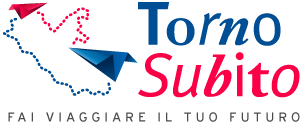
Since last 4 years, the ‘Torno Subito’ programme, funded by Lazio Region, launches a public competition addressed to young graduates, to support original projects aimed at gaining new professional skills and improving their working experiences. The program is based on two internship periods, the first outside the Lazio territory, the second within it, with the goal of both employing the new expertise to aid local territories and avoiding the brain drain.
Tommaso Rossi, graduated in Environmental Sciences, successfully caught this opportunity. With Adriana Pietrodangelo, permanent researcher of the CNR-Institute of Atmospheric Pollution Research who tutored his internship, Tommaso joined the first edition of the ‘Torno Subito’ competition with the project M.E.C.C.A.N.I.C.A. (Microscopia Elettronica Correlata alla Caratterizzazione del particolato Atmosferico Nell’Indagine del Carico inquinante delle Autofficine; EN: Electron Microscopy aimed at characterizing airborne particulates in the investigation of the pollution role of automotive repair shops), and he won it.

By the external internship at RJ Lee Group ((among the largest private scientific institutions of the USA, collaborating with EPA and NASA) tutored by Gary S. Casuccio, senior scientist and RJ Lee Group Vice President, and the internship at CNR-IIA, Tommaso received high educational skills and improved his professional experience. And at the end of the ‘Torno Subito’ program he was able to apply for a qualified job position diffused by the Italian Society of Aerosols (IAS) on behalf of INNOVHUB, Thanks to his new professional skills, strictly dealing with the requirements of the job position, Tommaso was successful with the selection and he is currently employed at the Engine Laboratory of INNOVHUB.
During the ‘Torno Subito’ program, a cooperation between the CNR-IIA and the RJ Lee Group was established to jointly contribute to M.E.C.C.A.N.I.C.A. project. This cooperation is currently still being carried on, beyond the end of ‘Torno Subito’, to the goal of investigating the environmental impact of the automotive repair shops in urban areas.
This ‘happy-ending’ story is an example of how a constructive dialog between research and public administrative institutions, built to the goals of supporting high education programs, opens new professional paths to young people, awards talents, and magnify the capacity of research investigations. The story of Tommaso with ‘Torno Subito’ and the CNR-IIA was recently published as a good example to be followed.
